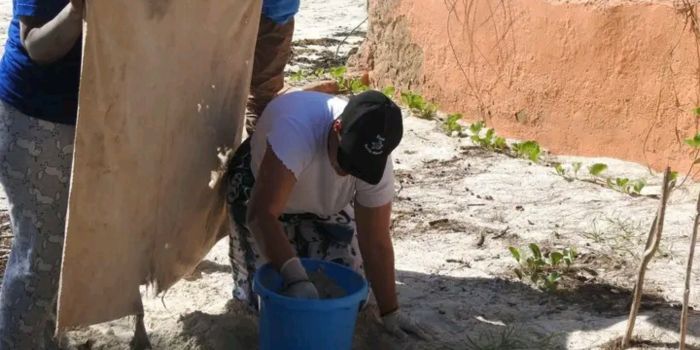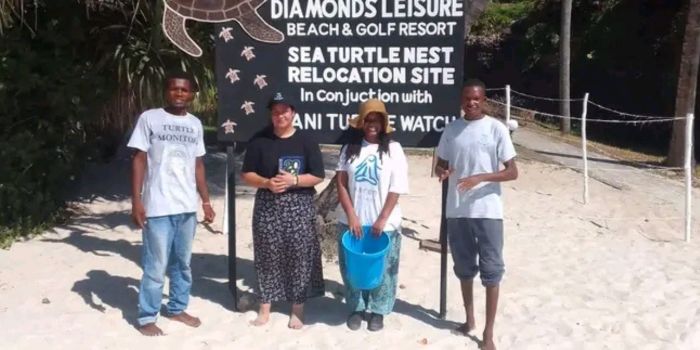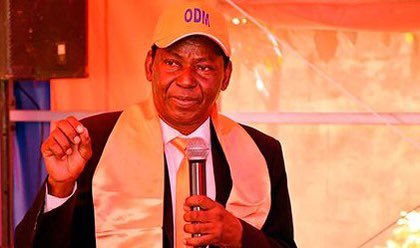Conservationists ask KWS for strict rules to protect turtles in Diani

Water sports and hunting for meat are major causes of the decline in the number of turtles in Diani, a group says.
An environmental conservation group in Diani, Kwale County, has raised concerns over the continued killing of sea turtles in the area, saying the species might become extinct.
Turtles hold significant economic, ecological and social values for humanity, but due to the high demand for commercialised products, they have been classified as 'Critically Endangered' marine species by the World Conservation Union.
More To Read
- Rescue mission launched to save Masai giraffes trapped by fences in Naivasha
- Lewa, KWS launch vulture tracking project to boost raptor conservation
- Rare eastern black rhino calf born in Chyulu Hills, boosting critically endangered population
- KWS rescues cheetah cub raised by woman in Garissa
- Sandalwood consignment worth Sh7.8 million destroyed in Maralal
- Snake farming could unlock economic and health benefits, experts say
They are listed on the International Union for Conservation of Nature (IUCN) Red List, with the loggerhead, leatherback and olive ridley classified as vulnerable, the green as endangered and the hawksbill as critically endangered. According to reports by the IUCN, the turtle population has declined by 80 per cent over the past 20 years.
The group, the Diani Turtle Watch, called on the Kenya Wildlife Service (KWS) to come up with strict laws to protect the endangered animal. Its appeal came a day after a nesting turtle was brutally slaughtered for meat.
 Parazzi Luciana, the head of Diani Turtle Watch, collects eggs from the Diani beach for relocation, during a patrol on April 27, 2024. (Photo: Mishi Gongo)
Parazzi Luciana, the head of Diani Turtle Watch, collects eggs from the Diani beach for relocation, during a patrol on April 27, 2024. (Photo: Mishi Gongo)
Speaking to The Eastleigh Voice, group head Parazzi Luciana said the turtle was laying eggs at the Bidi Badu beachfront when it was butchered.
"We received information that a turtle was laying eggs between the Two Fishes Hotel and Bidi Badu at about 5.30 am. Our team went to the site at 8.30 am but only found her intestines and some eggs," said Luciana.
"The place where the mother was laying eggs is a human/wildlife conflict area. This has never happened before and we are all shocked," Luciana said, adding that when they find eggs, they take them to a rehabilitation centre where they are monitored for about 60 days before they are returned to their mother for hatching.
Luciana said they called KWS officers who were on patrol and asked for help with the investigation, to prevent further incidents.
"We want to know who committed this atrocious act. At the moment, we have no suspect," she said.
Kenya is home to a variety of turtles, with at least 450 individuals along the coastline, according to the KWS.
They include the green turtle (Chelonia mydas), the hawksbill turtle (Eretmochelys imbricata), the loggerhead turtle (Caretta caretta), the olive ridley turtle (Lepidochelys olivacea), and the leatherback turtle (Dermochelys coriacea).
 Parazzi Luciana (C), the head of Diani Turtle Watch, and volunteers collect eggs for relocation during a beach patrol on April 27, 2024. (Photo: Mishi Gongo)
Parazzi Luciana (C), the head of Diani Turtle Watch, and volunteers collect eggs for relocation during a beach patrol on April 27, 2024. (Photo: Mishi Gongo)
The coastal ecosystems, including seagrasses, mangroves, coral reefs, and sand bars in Kenya's waters, have proven to be excellent places for turtle populations to thrive. However, most of these ecosystems are threatened by pollution, climate change, population growth, and mismanagement of resources.
Luciana noted the need for residents to be sensitised on the importance of protecting turtles, as many are killed for food and products that are sold on the black market on the southern coast of Kenya.
She noted that activities like water sports and hunting the turtles for meat are major causes of the decline in their numbers in Diani.
Asked about measures taken to protect the turtle, she said a team of trained monitors sourced from the local community patrols the beach to protect nesting females, their eggs, and hatchlings as they emerge from the nests.
"The By-Catch & Release Programme was launched as a mitigation measure to solve the problem of accidental sea turtle net entanglement. This significantly reduced sea turtle mortalities in the area," she said.
The Diani Turtle Watch oversees approximately 30km of the beach, from the Kongo River to Chale Island and further down to Funzi Island.
Top Stories Today

















































